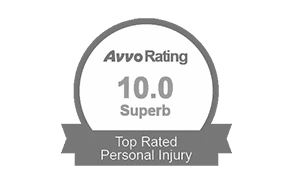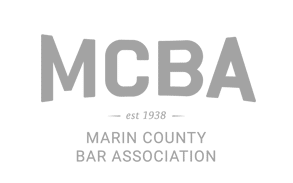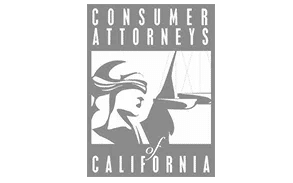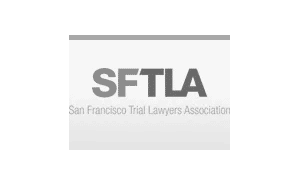
Proposition 22 (Prop 22) is a California law that recognizes rideshare and delivery drivers as independent contractors.
A significant impact of Prop 22 on California app-based drivers is their ability to financially recover after a work-related car accident.
The Gig Economy
As more and more people are choosing when and where to work, the gig economy is booming. This type of labor market is made up of independent contractors and freelancers who take on temporary, short-term jobs rather than long-term employment with a company.
From Uber drivers to Instacart grocery shoppers, these gig workers, also known as app-based workers, present a challenge to states trying to classify them and decide on what employment protections they should have.
Proposition 22 in California
The California Proposition 22 initiative, also known as the App-Based Drivers as Contractors and Labor Policies Initiative, addresses the question of whether app-based drivers are employees or independent contractors under California law.
Recently, California’s Assembly Bill 5 (AB 5), classified app-based workers as employees and afforded them protections and rights under California’s labor and employment laws. This employee status gave workers access to unemployment insurance, health insurance, minimum wage, and collective bargaining.
The app-based companies Uber, Lyft, Instacart, and DoorDash did not support AB 5. Uber and Lyft even threatened to suspend service in California. As a result, these companies poured over $200 million into the California Prop 22 campaign, making it the most expensive ballot measure in California history.
Under CA Prop 22, app-based employees are exempt from AB 5 and classified as independent contractors, not employees or agents of a company. In effect, this limits access to job benefits afforded to employees, such as minimum wage, workers’ compensation, family or sick leave, employer-provided healthcare, and bargaining rights.
On November 3, 2020, 58.63% of voters in California voted in favor of Prop 22 and the law went into effect in mid-December of 2020.
How Does Proposition 22 Impact App-Based Drivers?
Prop 22 for Uber, Lyft, and other app-based companies essentially exempts them from their obligations under California employment law.
For rideshare and delivery drivers, who are constantly at risk of accidents, this significantly limits their recovery options if they suffer injuries in an accident while working. Unlike regular employees, gig workers do not have access to workers’ compensation or employer-provided healthcare.
At Wakeford Law Firm, we continue to monitor the developments and impacts of Prop 22 in California during 2021, since this is the first full year it is in effect.
How Do I Seek Compensation for My Injuries?
If you are the injured driver in an Uber or Lyft accident, there are several options for you to financially recover.
Uber and Lyft Insurance Coverage
California law requires rideshare companies to maintain $1 million in insurance coverage. Thus, Uber and Lyft have similar insurance policies in terms of amounts and coverage options. The key to your ability to recover for your injuries through their insurance is the timing of the accident, which is broken down as follows:
- Period 0: the app is off;
- Period 1: the app is on and the driver is waiting for someone to request a ride;
- Period 2: the driver accepted a request and is en route to pick up the passenger; and
- Period 3: the driver is transporting the passenger to the destination.
Whether the app was on and the purpose of your driving determines your eligibility to recover.
Period 0
For period 0, Uber and Lyft’s insurance does not apply to you at all. Only your personal auto insurance policy, which California requires you to have, may provide compensation for your injuries. Personal auto insurance policies in California may include the following types of coverage:
- Medpay, which covers the driver’s medical expenses (optional);
- Collision coverage, which applies to damage to your car; and
- Uninsured/underinsured coverage, which is insurance for your injuries if the other driver is at fault and lacks sufficient coverage.
There is a wrinkle in all this though. Often, rideshare drivers have a personal auto insurance policy even though they are using their car for commercial purposes.
The premiums for commercial policies are typically high, so many drivers do not have this much broader coverage. If your insurance company finds out you are using your car for commercial purposes, it may deny your claim.
Period 1
For period 1, Uber and Lyft’s insurance policies only cover injuries and property damage to the other injured party. In other words, if you are injured while waiting for a request, you must rely on your own insurance coverage.
Periods 2 and 3
For periods 2 and 3, Uber or Lyft’s uninsured/underinsured motorist insurance policy may apply. However, this insurance only covers certain accidents, and you can only be compensated for what your insurance and the other driver’s insurance policies do not cover.
As you can see, there are significant limitations to your recovery options through Uber and Lfyt’s insurance.
File Personal Injury Claim Against At-Fault Driver
Since Prop 22 in California eliminates employment law protections for rideshare drivers, and Uber and Lyft’s insurance policies only apply in limited circumstances, your best option may be to file a personal injury claim against another at-fault driver.
You may be able to receive some compensation even if you were partially at fault for the accident.
Damages
California law entitles accident victims to compensatory damages for their injuries. In a personal injury claim, you may be awarded two types of damages: economic and non-economic.
Economic damages are meant to compensate you for out-of-pocket expenses related to your injuries. Some examples of economic damages include medical bills, lost income, loss of future earning capacity, and property damage.
Non-economic damages are not as easy to quantify but typically include pain and suffering, emotional distress, physical impairment.
Deadline to file claim
The deadline, also known as the statute of limitations, to file your personal injury claim in California is two years from the date of the accident. It is crucial to the success of your case to contact a California personal injury attorney soon after your accident so that you do not miss your opportunity to get compensation.
Contact Wakeford Law Firm Today
At Wakeford Law Firm, we know how to assist app-based drivers in financially recovering from an accident. We will take the time to explain your options and fight hard to obtain maximum recoveries for your personal injury claim.
Contact the experienced personal injury lawyers at Wakeford Law Firm today for a free consultation. Let’s get you back on the road.
How useful was this post?
Click on a star to rate it!
Average rating 0 / 5. Vote count: 0
No votes so far! Be the first to rate this post.







